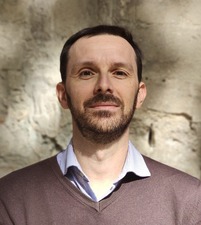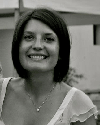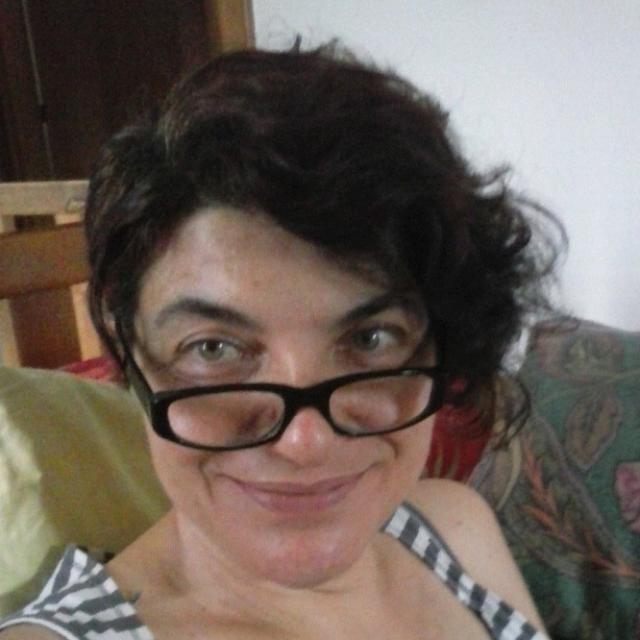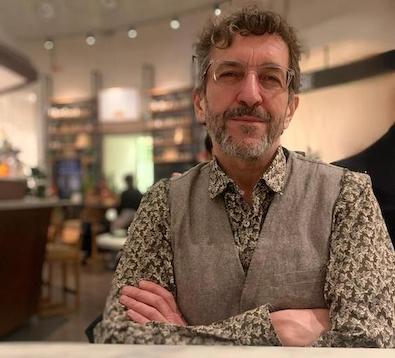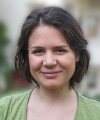Studying at the University of Verona
Here you can find information on the organisational aspects of the Programme, lecture timetables, learning activities and useful contact details for your time at the University, from enrolment to graduation.
Academic calendar
The academic calendar shows the deadlines and scheduled events that are relevant to students, teaching and technical-administrative staff of the University. Public holidays and University closures are also indicated. The academic year normally begins on 1 October each year and ends on 30 September of the following year.
Course calendar
The Academic Calendar sets out the degree programme lecture and exam timetables, as well as the relevant university closure dates..
| Period | From | To |
|---|---|---|
| CuCi IA | Sep 21, 2020 | Oct 31, 2020 |
| CuCi IB | Nov 9, 2020 | Jan 9, 2021 |
| CuCi IIA | Feb 15, 2021 | Apr 1, 2021 |
| CuCi IIB | Apr 14, 2021 | May 29, 2021 |
| Session | From | To |
|---|---|---|
| sessione d'esame invernale CuCi | Jan 11, 2021 | Feb 13, 2021 |
| sessione d'esame estiva CuCi | Jun 7, 2021 | Jul 24, 2021 |
| sessione d'esame autunnale CuCi | Aug 23, 2021 | Sep 18, 2021 |
| Session | From | To |
|---|---|---|
| sessione di laurea invernale 19-20 | Apr 7, 2021 | Apr 13, 2021 |
| sessione di laurea estiva 20-21 | Jul 5, 2021 | Jul 10, 2021 |
| Sessione autunnale di laurea a.a. 2020/21 | Nov 8, 2021 | Nov 13, 2021 |
| Sessione straordinaria di laurea a.a. 2020/21 | Mar 28, 2022 | Apr 2, 2022 |
| Period | From | To |
|---|---|---|
| Festa di Ognissanti | Nov 1, 2020 | Nov 1, 2020 |
| Chiusura Ateneo ponte Immacolata | Dec 7, 2020 | Dec 7, 2020 |
| Festa dell'Immacolata | Dec 8, 2020 | Dec 8, 2020 |
| Vacanze di Natale | Dec 24, 2020 | Jan 6, 2021 |
| Vacanze di Pasqua | Apr 2, 2021 | Apr 6, 2021 |
| Festa della liberazione | Apr 25, 2021 | Apr 25, 2021 |
| Festa del lavoro | May 1, 2021 | May 1, 2021 |
| Festa del Santo Patrono | May 21, 2021 | May 21, 2021 |
| Sospensione delle lezioni | May 22, 2021 | May 22, 2021 |
| Festa della Repubblica | Jun 2, 2021 | Jun 2, 2021 |
| Vacanze estive | Aug 9, 2021 | Aug 15, 2021 |
Exam calendar
Exam dates and rounds are managed by the relevant Culture and Civilisation Teaching and Student Services Unit.
To view all the exam sessions available, please use the Exam dashboard on ESSE3.
If you forgot your login details or have problems logging in, please contact the relevant IT HelpDesk, or check the login details recovery web page.
Should you have any doubts or questions, please check the Enrollment FAQs
Academic staff
 luca.bochicchio@univr.it
luca.bochicchio@univr.it
 evita.calabrese@univr.it
evita.calabrese@univr.it
 sofia.piacentin@univr.it
sofia.piacentin@univr.it
 alberto.scandola@univr.it
alberto.scandola@univr.it
Study Plan
The Study Plan includes all modules, teaching and learning activities that each student will need to undertake during their time at the University.
Please select your Study Plan based on your enrollment year.
1° Year
| Modules | Credits | TAF | SSD |
|---|
2° Year activated in the A.Y. 2021/2022
| Modules | Credits | TAF | SSD |
|---|
Latin literature (i)
3° Year activated in the A.Y. 2022/2023
| Modules | Credits | TAF | SSD |
|---|
| Modules | Credits | TAF | SSD |
|---|
| Modules | Credits | TAF | SSD |
|---|
Latin literature (i)
| Modules | Credits | TAF | SSD |
|---|
| Modules | Credits | TAF | SSD |
|---|
Legend | Type of training activity (TTA)
TAF (Type of Educational Activity) All courses and activities are classified into different types of educational activities, indicated by a letter.
Contemporary History (i+p) - I MODULO PARTE (I) (2021/2022)
Teaching code
4S02147
Teacher
Credits
6
Also offered in courses:
- Contemporary History - MODULO 1 of the course Bachelor's degree in Philosophy
- Contemporary History (i) of the course Bachelor’s degree in Humanities
- Contemporary History (i) of the course Bachelor’s degree in Cultural Heritage
Language
Italian
Scientific Disciplinary Sector (SSD)
M-STO/04 - CONTEMPORARY HISTORY
Period
1 A, 1 B
To show the organization of the course that includes this module, follow this link: Course organization
Learning outcomes
Learning outcomes
The course serves as a starting point for the approach to the study of contemporary history.
It focuses on the political, intellectual and social history of Europe between 1776 and 1900, which is addressed, starting from the Italian case, in a comparative and transnational perspective.
At the end of the course the student must be able to know: a) problems and methodologies of contemporary history, b) the main periodizations used by the historiography c) the most relevant events of the period considered, distinguishing between those relating to the general European framework and those relating to the different national contexts, d) the most important political cultures, economic processes and social transformations that mark the period indicated, e) the most important historiographic interpretations.
Program
Syllabus
The Nineteenth century and the birth of the modern world
Lessons topics
1. What is contemporary history? Periodizations, methods and sources.
2. The 18th century revolutions and the birth of the modern world.
3. The Napoleonic era.
4. The Restoration and the new European order.
5. New revolutionary cycles: 1820-1831.
6. 1848-49: an European revolution.
7. Bourgeois Europe and the world.
8. The Italian Risorgimento: premises and developments.
9. The process of Italian unification.
10. German unification.
11. The “first” globalization and the birth of colonial domains.
12. Characteristics and structures of liberal Italy (1861-1887).
13. The political transformations of Italian political system (1887-1900).
14. The United States new world power.
15. Italy during the Giolitti age.
16. Europe between the 19th and the 20th centuries.
17. Colonialism and imperialism.
Literature
1. A.M. Banti, L’età contemporanea. Dalle rivoluzioni settecentesche all’imperialismo, Laterza, 2009 (and subsequent editions).
2. One book among:
M. Isabella, Risorgimento in esilio. L’internazionale liberale e l’età delle rivoluzioni, Laterza, 2011.
A. Arisi Rota, Risorgimento. Un viaggio politico e sentimentale, Il Mulino, 2019.
F. Cammarano, Storia dell’Italia liberale, Laterza, 2011 (and subsequent editions).
M. Baioni, Vedere per credere. Il racconto museale dell’Italia unita, Viella, 2020.
Non-attending students must add the following text to the bibliography:
D. Beales-E. F. Biagini, Il Risorgimento e l’unificazione italiana, Il Mulino, 2005 ((and subsequent editions).
Teaching modes
The course includes the alternation between frontal lessons and audiovisual materials.
Examination Methods
Examination procedure
1. Assessment methods: structured written exam in open and closed questions.
2. Objectives: to verify the ability to disply concepts using appropriate historical terminoloy, the ability to link events and to place them adequately within the individual national contexts, the knowledge of the different historiographical interpretations of the most relevant historical processes.
3. Contents: the questions will focus on the topics covered during the course and developed in the volumes indicated in the bibliography.
4. Assessment methods: score expressed in thirtieths, resulting from the sum of the points assigned to each of the questions.
The regulation of the degree program requires compliance with the propaedeutics of the modules: it is therefore not possible to prepare the module P without having passed the module I.
Students are not advised to deal with the form I and the P form in the same appeal.
Other informations
The course is propaedeutic to the frequency of Contemporary History (P) which will take place in the second semester.
The required prerequisites are: basic knowledge of historical events between the mid-eighteenth century and early twentieth century.
Erasmus students (and students hosted with other international mobility programs) who attend classes, can choose between these different choises:
1. written exam (also in English).
2. oral exam (in English, French and Spanish)
They can also, agreed with the professor, use other books in the following languages: English, French, Spanish.
For more details: contact the teacher during weekly office hours.
Type D and Type F activities
| years | Modules | TAF | Teacher |
|---|---|---|---|
| 1° 2° 3° | Dialogoi. Interdepartmental seminar on the texts of philosophy and ancient literature | F |
Gherardo Ugolini
(Coordinator)
|
| 1° 2° 3° | Fondamenti per introduzione allo studio del linguaggio | F |
Federico Righi
(Coordinator)
|
| 1° 2° 3° | Giornata mondiale della poesia | F |
Arnaldo Soldani
(Coordinator)
|
| 1° 2° 3° | The Unesco World Heritage Sites | F |
Silvana Bianchi
(Coordinator)
|
| 1° 2° 3° | Il testo en abyme: rappresentazioni della scrittura nell’Europa romantica - Convegno internazionale del CRIER - 5-6 novembre 2020 | F |
Corrado Viola
(Coordinator)
|
| 1° 2° 3° | Intercomprehension laboratory between the Romance languages | F |
Alessandra Zangrandi
(Coordinator)
|
| 1° 2° 3° | Laboratory to introduce the study of Ancient Greek | F |
Dino Piovan
(Coordinator)
|
| 1° 2° 3° | Books and writings of the Greek world | F |
Paolo Scattolin
(Coordinator)
|
| years | Modules | TAF | Teacher |
|---|---|---|---|
| 1° 2° 3° | The origins of Christianity | F |
Giannattilio Bonifacio
(Coordinator)
|
| years | Modules | TAF | Teacher |
|---|---|---|---|
| 1° 2° 3° | Convegno su carlo gozzi nel terzo centenario della nascita | F |
Nicola Pasqualicchio
(Coordinator)
|
| 1° 2° 3° | Dialogoi. Interdepartmental seminar on the texts of philosophy and ancient literature | F |
Gherardo Ugolini
(Coordinator)
|
| 1° 2° 3° | Fondamenti per introduzione allo studio del linguaggio | F |
Federico Righi
(Coordinator)
|
| 1° 2° 3° | Intercomprehension laboratory between the Romance languages | F |
Alessandra Zangrandi
(Coordinator)
|
| 1° 2° 3° | Laboratory to introduce the study of Ancient Greek | F |
Dino Piovan
(Coordinator)
|
| 1° 2° 3° | Laboratorio di metrica italiana | F |
Giovanna Zoccarato
(Coordinator)
|
| 1° 2° 3° | Books and writings of the Greek world | F |
Paolo Scattolin
(Coordinator)
|
| years | Modules | TAF | Teacher |
|---|---|---|---|
| 1° 2° 3° | The origins of Christianity | F |
Giannattilio Bonifacio
(Coordinator)
|
| years | Modules | TAF | Teacher |
|---|---|---|---|
| 1° 2° 3° | Antifascismo/i, un percorso in quattro profili | F |
Renato Camurri
(Coordinator)
|
| 1° 2° 3° | Lectures "Musiche/Culture/Civiltà" | F |
Vincenzo Borghetti
(Coordinator)
|
| 1° 2° 3° | Dialogoi. Interdepartmental seminar on the texts of philosophy and ancient literature | F |
Gherardo Ugolini
(Coordinator)
|
| 1° 2° 3° | Educational workshop on bibliotherapy | F |
Marco Dalla Valle
(Coordinator)
|
| 1° 2° 3° | Laboratory of photo | F |
Carlo Vannini
(Coordinator)
|
| 1° 2° 3° | Intercomprehension laboratory between the Romance languages | F |
Alessandra Zangrandi
(Coordinator)
|
| 1° 2° 3° | Laboratory to introduce the study of Ancient Greek | F |
Dino Piovan
(Coordinator)
|
| 1° 2° 3° | Workshop on akkadian language | F |
Simonetta Ponchia
(Coordinator)
|
| 1° 2° 3° | Opera Workshop | F |
Nicola Pasqualicchio
(Coordinator)
|
| 1° 2° 3° | Language and culture of Ancient Anatolia and the Hittites | F |
Federico Giusfredi
(Coordinator)
|
| years | Modules | TAF | Teacher |
|---|---|---|---|
| 1° 2° 3° | Attivita' FAI | F |
Monica Molteni
(Coordinator)
|
| 1° 2° 3° | Workshop on Latin texts translation | - |
Renata Raccanelli
(Coordinator)
|
| 1° 2° 3° | Workshop on Latin texts translation | - |
Renata Raccanelli
(Coordinator)
|
| 1° 2° 3° | Latin Prosody exercises | - |
Paolo De Paolis
(Coordinator)
|
| 1° 2° 3° | Organizzazione e stesura della tesi triennale su temi letterari | - |
Giuseppe Sandrini
(Coordinator)
|
Career prospects
Module/Programme news
News for students
There you will find information, resources and services useful during your time at the University (Student’s exam record, your study plan on ESSE3, Distance Learning courses, university email account, office forms, administrative procedures, etc.). You can log into MyUnivr with your GIA login details: only in this way will you be able to receive notification of all the notices from your teachers and your secretariat via email and soon also via the Univr app.
Graduation
List of theses and work experience proposals
| theses proposals | Research area |
|---|---|
| tesi di Glottologia, Storia comparata, Linguistica storica | ENGLISH LANGUAGE - Grammar and Syntax – Grammatik und Syntax |
| tesi di Glottologia, Storia comparata, Linguistica storica | GERMANIC LANGUAGE - Dialectology - Dialektologie |
| tesi di Glottologia, Storia comparata, Linguistica storica | HUMANITIES & SOCIAL STUDIES - HUMANITIES & SOCIAL STUDIES |
| tesi di Glottologia, Storia comparata, Linguistica storica | Indo-European languages & literatures - Indo-European languages & literatures |
| tesi di Glottologia, Storia comparata, Linguistica storica | LINGUISTICS - LINGUISTICS |
| Stage | Research area |
|---|---|
| Lavorare in archivio | Various topics |
| L'iter del libro in biblioteca | Various topics |
Gestione carriere
Linguistic training CLA
Student mentoring
Requisiti classi di abilitazione insegnamento
Requisiti necessari per accedere alle classi di abilitazione per l'insegnamento.
vedi allegato pdf
Inoltre, per informazioni sui 24 CFU nelle discipline antropo-psico-pedagogiche e nelle metodologie e tecnologie didattiche, si veda -> LINK
Documents
| Title | Info File |
|---|---|
|
|
pdf, it, 307 KB, 30/11/21 |

 +39 045802 8351
+39 045802 8351
